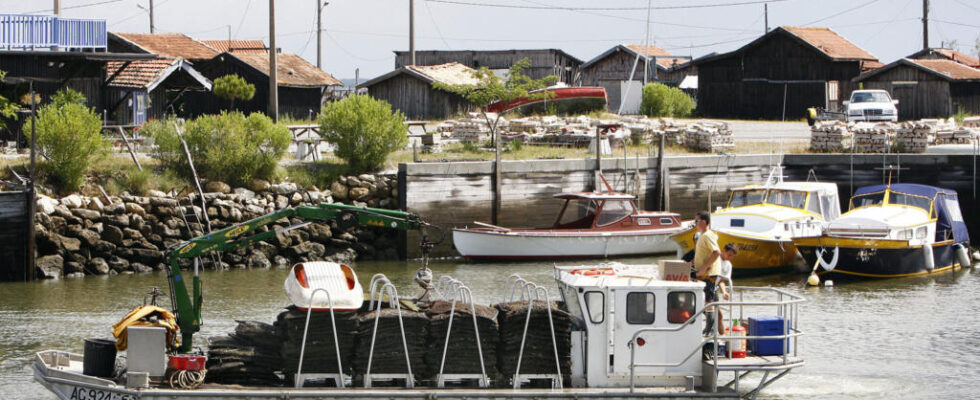On January 29, at the height of the end-of-year holidays, the prefect of Gironde ordered a three-week ban on the sale of oysters from the Arcachon basin. The cause: their contamination by a virus of human origin which spilled into the water after heavy rains. Five months later, the courts forced the water network managers to carry out work. But professionals are struggling to regain consumer trust. And sales are still not taking off.
With increasingly rare orders for oysters, Lucas Simon, an oyster farmer, confides his difficulties behind his stand at a Bordeaux market: “ I’m not going to say that we don’t sell oysters, but we don’t sell as many as we should currently. In terms of figures, we are approximately 50% less in sales compared to last year. »
Norovirus, responsible for this sharp decline
The reason for this drop in sales has a name: norovirus, a virus that causes gastroenteritis. After heavy rains this winter, this virus present in wastewater spilled into the Arcachon basin. At the beginning of January, oysters were banned from sale for more than three weeks.
The president of the Arcachon Basin Water Defense Association, Thierry Laffont, is an oyster farmer. He blames the union in charge of water management, Siba, for the situation:
“ This has created consumer disenchantment and consumption is really struggling to pick up again. » Thierry Laffont explains having filed a complaint against Siba: “ I filed it in the name of the Water Defense Association and in my own name, as an oyster farmer, because I consider that they are the cause of major harm and water pollution. , and for my activity, with significant economic consequences. »
The oyster farmer insists: “ It is [le Siba] Who is responsible. So, it was completely normal to file a complaint. Saying that the environment in which we work is polluted is not the most appealing thing for what we are going to put on the plate… We must be aware that there is a moment where we can no longer be content with a position of reserve and not daring to say things. »
Faced with climate change, launch emergency work
On April 2, the Bordeaux judicial court ruled in favor of the oyster farmer. The union and its subsidiary, managed by the Veolia group, must carry out emergency work so that wastewater no longer overflows into the Arcachon basin. Christelle de Traversay, director of operations for Veolia Water in the southwest:
“ [Cette décision] implies for a company like ours, but also for the community, to undertake work and plan ahead, saying : this exceptional situation could start again. And this is how we are going to treat it. »
Christelle de Traversay talks about climate change: “ With climate change, it will happen again. We are now working to really identify these exceptional situations as early as possible, so as to be able to advise communities and propose solutions to communities. »
In the meantime, in the Basin, professionals hope that the return of good weather will bring customers back. A major communication campaign was launched on the roads. In the small oyster shacks, this same message is plastered on posters: “ Let’s meet. »
Read also“In an oyster, there is a little heart that beats”
